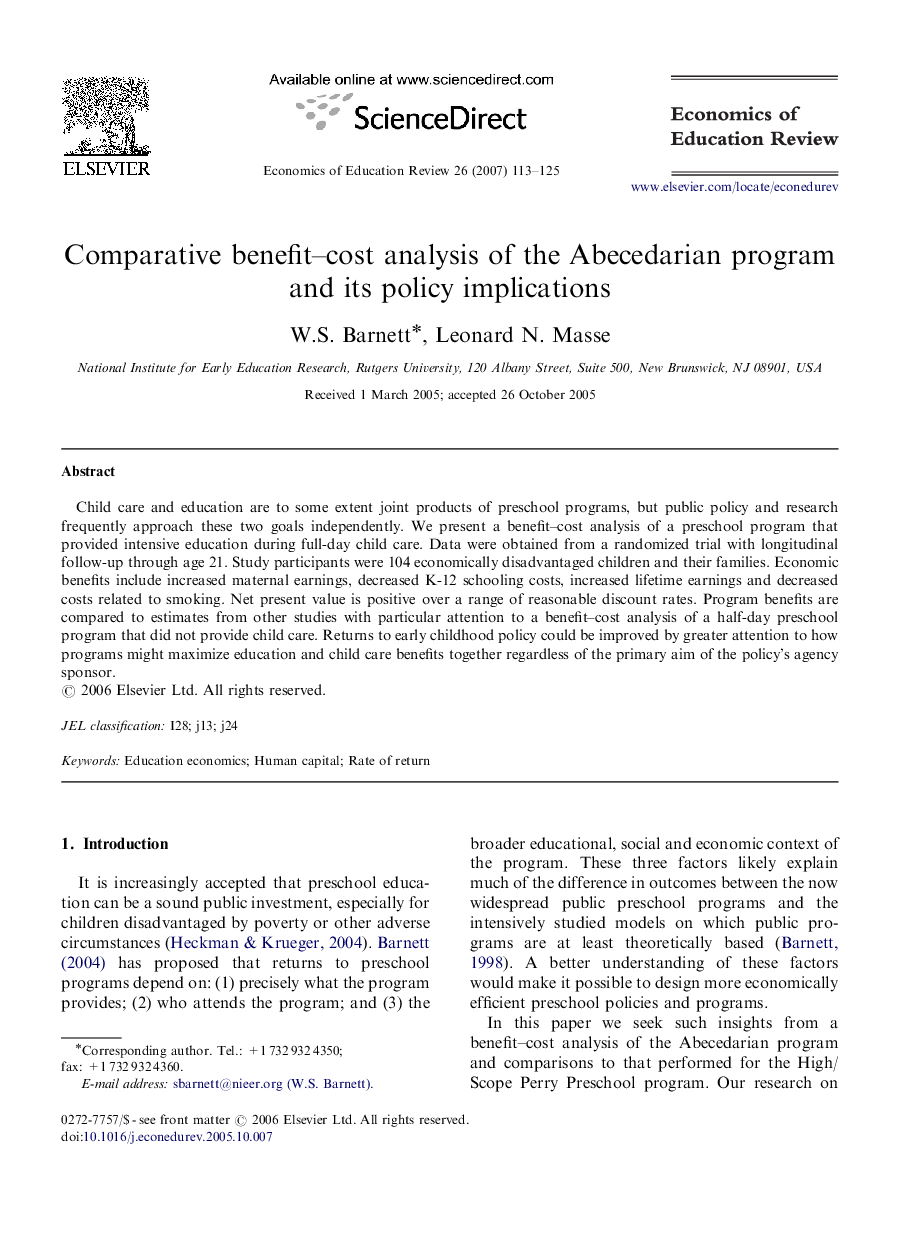| Article ID | Journal | Published Year | Pages | File Type |
|---|---|---|---|---|
| 355041 | Economics of Education Review | 2007 | 13 Pages |
Child care and education are to some extent joint products of preschool programs, but public policy and research frequently approach these two goals independently. We present a benefit–cost analysis of a preschool program that provided intensive education during full-day child care. Data were obtained from a randomized trial with longitudinal follow-up through age 21. Study participants were 104 economically disadvantaged children and their families. Economic benefits include increased maternal earnings, decreased K-12 schooling costs, increased lifetime earnings and decreased costs related to smoking. Net present value is positive over a range of reasonable discount rates. Program benefits are compared to estimates from other studies with particular attention to a benefit–cost analysis of a half-day preschool program that did not provide child care. Returns to early childhood policy could be improved by greater attention to how programs might maximize education and child care benefits together regardless of the primary aim of the policy's agency sponsor.
